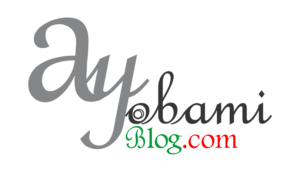For months now, Canada’s Prime Minister Justin Trudeau has been asked variations of the same question: “Will you step down?”
But though he vowed to stay on as Liberal Party leader – despite deepening frustrations amongst voters and a political rival surging in the polls – even the self-described “fighter” could not withstand the growing chorus of members of his own party calling for him to resign.
“This country deserves a real choice in the next election, and it has become clear to me that if I’m having to fight internal battles, I cannot be the best option in that election,” Trudeau conceded on Monday, announcing his resignation in front of Rideau Cottage, his official residence for most of the last decade.
He will stay on as prime minister until a new Liberal Party leader is chosen, at a date yet to be set by the party.
Trudeau asked for parliament to be prorogued – or suspended – until 24 March to give time for the party to find a new leader.
Trudeau swept to power nearly a decade ago, heralded as the fresh face of progressive politics.
In 2015, swayed by his youthful charisma and a hopeful political message, voters catapulted the Liberals from a third-place party to holding a majority of seats in parliament – unprecedented in Canadian political history.
Now, he remains the only leader left standing among peers when he came into office, from Barack Obama to Angela Merkel, Shinzo Abe and David Cameron, and at 53 years old, is currently the longest-serving leader in the G7.
But in the years since his ascent to the global stage, and over two general elections, Trudeau and his brand have become a drag on the party’s fortunes.
Paul Wells, a Canadian political journalist and the author of Justin Trudeau on the Ropes, recently told the BBC he believes Trudeau will be remembered “as a consequential” prime minister, notably for providing genuine leadership on issues like indigenous reconciliation and, to some extent, climate policy.
But he is also one “who felt increasingly out of touch with public opinion and was increasingly unable to adjust to changing times”.
On Monday, Trudeau was quick to tout what he was proud of accomplishing in office, including navigating the tumultuous Covid pandemic, renegotiating a free trade deal with the last Trump administration, and implementing a child benefit widely seen as helping alleviate poverty.
But a series of ethics scandals early on began to take the sheen off the new government – he was found to have violated federal conflict of interest rules in the handling of a corruption inquiry – the SNC-Lavalin affair – and for luxury trips to the Bahamas.
In 2020, he faced scrutiny for picking a charity with ties to his family to manage a major government programme.
In a general election in 2019, his party was reduced to a minority status, meaning the Liberals had to rely on the support of other parties to stay in power.
A snap election in 2021 did not improve their fortunes.
More recently, Trudeau faced headwinds from cost of living increases and inflation that have contributed to election upsets around the world.
There was also frustration in the country over what was seen as struggles to deliver on big promises – an agenda that was “overfilled, overstuffed”, said Mr Wells – and his handling of issues like immigration.
Late last year, the Liberals backtracked on ambitious immigration targets over concerns the issue was mismanaged, significantly cutting back on the number of newcomers allowed in Canada.
He also sometimes handed his opponents easy political wins, including when it came to light that he had worn black and brown face before holding office.
Credit: BBC
Discover more from Ayobami Blog
Subscribe to get the latest posts sent to your email.











